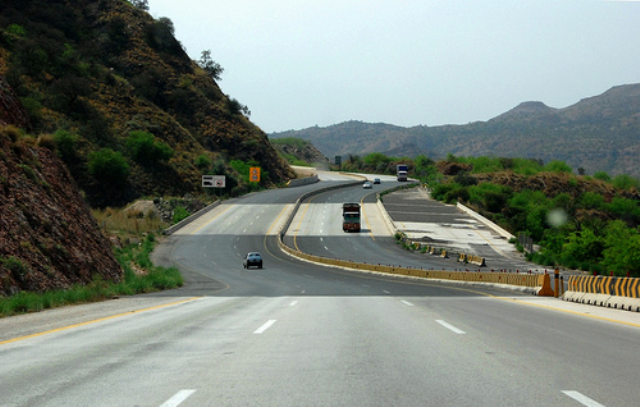Govt defers approval of motorway project
Decision comes on back of proposed changes in project’s financing model

The federal government on Monday deferred approval of Rs192 billion worth of Hyderabad-Sukkur motorway project due to proposed changes in its financing model, which now seeks Rs76 billion from the budget compared to the original plan of constructing the road with private sector funding.
The Central Development Working Party (CDWP), which has a mandate to approve public sector projects, referred back the scheme to the Public Private Partnership (PPP) Authority for vetting the budget demand of Rs76 billion.
Headed by the Planning Commission deputy chairman, the CDWP also put off approval of two Covid-related projects.
However, it approved a coronavirus-related scheme costing Rs3.7 billion and recommended a Punjab government river project of Rs89.6 billion to the Executive Committee of National Economic Council (Ecnec) for further consideration.
The Ministry of Communication tabled a new summary for the construction of Hyderabad-Sukkur motorway through a combination of public and private funding, which was not part of the plan the government approved in April last year.
The Rs191.5 billion project is aimed at constructing a 306km road on build, operate and transfer basis under the public-private partnership model. The federal government’s share is now estimated at Rs75.9 billion or 39.6%. Initially, the share of federal government was only 0.7% or Rs1.1 billion.
The project was initially expected to be completed at a cost of Rs165 billion, which has now increased to Rs191.5 billion.
Land for the project will also be bought by the federal government through a separate project.
The basis for the original PC-1 was a commercial feasibility study of December 2019, which proposed cross-subsidy from the SukkurMultan motorway for 10 years.
Now, instead of the cross-subsidy, Rs76 billion is proposed to be given from the budget as the viability gap funding that will increase the government’s share to 39.6%.
The CDWP chairman gave directives that funding requirements must be determined by the PPP Authority.
The National Highway Authority (NHA) informed the CDWP that there was poor response in the prequalification process, as only one company submitted expression of interest and the process had to be annulled.
Transport section of the planning ministry has questioned the “professionalism of the NHA” for changing the financing mode despite preparing the first PC-1 on the basis of commercial feasibility study, said an official who attended the meeting.
As per original PC-I, the NHA’s revenue share during the construction phase was Rs116.3 billion, which has been changed in the new PC-I.
The increase in cost from Rs165 billion to Rs192 billion will also dent the government’s claim that it will construct the project at rates lower than the China-Pakistan Economic Corridor (CPEC) project rates.
Last year, the planning ministry had said that at CPEC project rates, the Hyderabad-Sukkur motorway would have cost Rs232 billion.
The CDWP approved a village rehabilitation programme under an umbrella scheme at a cost of Rs3.7 billion.
However, the CDWP deferred the approval of Sindh governmentfunded Covid-19 response and other natural calamities’ projects having cost estimate of Rs20.5 billion. The project envisages strengthening the health system to prepare and respond to pandemic-like situations.
Similarly, the post-Covid national response programme costing Rs22.2 billion was also deferred.
The share of federal government is estimated at Rs12.5 billion while the remaining cost is proposed to be paid by the provincial governments.
The CDWP recommended the Punjab Rural Sustainable Water Supply and Sanitation Project worth Rs89.5 billion to Ecnec for approval. The project will be completed by taking loan from the World Bank.
The project is aimed at providing integrated WASH infrastructure development to almost 2,000 villages to provide safely managed drinking water and improved sanitation facilities to the rural population in the 2,000 selected villages, rejuvenate the existing water supply and sanitation infrastructure, to support the institutional reform, educate and raise awareness about behaviours etc.


















COMMENTS
Comments are moderated and generally will be posted if they are on-topic and not abusive.
For more information, please see our Comments FAQ